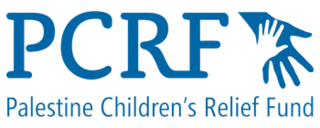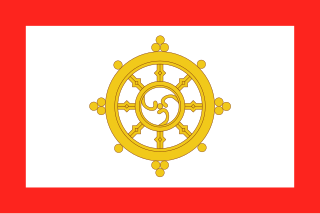Policy and charging rules function (PCRF) is the software node designated in real-time to determine policy rules in a multimedia network.
PCRF may also refer to:
Policy and charging rules function (PCRF) is the software node designated in real-time to determine policy rules in a multimedia network.
PCRF may also refer to:
Neutral or neutrality may refer to:
Terms of service are the legal agreements between a service provider and a person who wants to use that service. The person must agree to abide by the terms of service in order to use the offered service. Terms of service can also be merely a disclaimer, especially regarding the use of websites. Vague language and lengthy sentences used in the terms of use have brought concerns on customer privacy and raised public awareness in many ways.

The Palestine Children's Relief Fund (PCRF) is a registered 501(c)(3) non-governmental organization established in 1991, by, according to its website, "concerned people in the U.S. to address the medical and humanitarian crisis facing Palestinian youths in the Middle East." The main objective of the PCRF is to locate in the United States and Europe free medical care for children who cannot be adequately treated in the Middle East. Since 1991, tens of thousands of young people have received medical treatment through the PCRF.
A privacy policy is a statement or legal document that discloses some or all of the ways a party gathers, uses, discloses, and manages a customer or client's data. Personal information can be anything that can be used to identify an individual, not limited to the person's name, address, date of birth, marital status, contact information, ID issue, and expiry date, financial records, credit information, medical history, where one travels, and intentions to acquire goods and services. In the case of a business, it is often a statement that declares a party's policy on how it collects, stores, and releases personal information it collects. It informs the client what specific information is collected, and whether it is kept confidential, shared with partners, or sold to other firms or enterprises. Privacy policies typically represent a broader, more generalized treatment, as opposed to data use statements, which tend to be more detailed and specific.

Network neutrality, often referred to as net neutrality, is the principle that Internet service providers (ISPs) must treat all Internet communications equally, offering users and online content providers consistent rates irrespective of content, website, platform, application, type of equipment, source address, destination address, or method of communication.
Criticism of communism may refer to:

YouTube is an American online video sharing and social media platform headquartered in San Bruno, California, United States. Accessible worldwide, it was launched on February 14, 2005, by Steve Chen, Chad Hurley, and Jawed Karim. It is owned by Google and is the second most visited website, after Google Search. YouTube has more than 2.5 billion monthly users, who collectively watch more than one billion hours of videos each day. As of May 2019, videos were being uploaded at a rate of more than 500 hours of content per minute.

In the Netherlands, coffeeshops are establishments where the sale of cannabis for personal consumption by the public is tolerated by the local authorities.
Administration may refer to:

The Kingdom of Sikkim, officially Dremoshong until the 1800s, was a hereditary monarchy in the Eastern Himalayas which existed from 1642 to 16 May 1975, when it was annexed by the Republic of India. It was ruled by Chogyals of the Namgyal dynasty.
"Ignore all rules" (IAR) is a policy in the English Wikipedia. It reads: "If a rule prevents you from improving or maintaining Wikipedia, ignore it." [emphasis in original]. The rule was proposed by Wikipedia co-founder Larry Sanger to encourage editors to add information without focusing excessively on formatting, though Sanger later criticized the rule's effects on the community.
Policy and Charging Rules Function (PCRF) is the software node designated in real-time to determine policy rules in a multimedia network. As a policy tool, the PCRF plays a central role in next-generation networks. Unlike earlier policy engines that were added onto an existing network to enforce policy, the PCRF is a software component that operates at the network core and accesses subscriber databases and other specialized functions, such as a charging system, in a centralized manner. Because it operates in real time, the PCRF has an increased strategic significance and broader potential role than traditional policy engines. This has led to a proliferation of PCRF products since 2008.

Aptilo Networks is a company headquartered in Stockholm Sweden, which produces and markets software systems to manage mobile data and Wi-Fi services for 3G, LTE, WiMAX, Wi-Fi and fixed broadband networks, including solutions for mobile data offloading using Wi-Fi. Aptilo's service management platform controls billing, user services and access within the network. The company offers service management and policy control solutions for both telephony network operators and Internet service providers.
Public Cause Research Foundation (PCRF) was a Delhi, India-based non-governmental organisation (NGO) that campaigned for just, transparent, accountable and participatory governance.
QoS Class Identifier (QCI) is a mechanism used in 3GPP Long Term Evolution (LTE) networks to ensure carrier traffic is allocated appropriate Quality of Service (QoS). Different carrier traffic requires different QoS and therefore different QCI values. QCI value 9 is typically used for the default carrier of a UE/PDN for non privileged subscribers.
Fisher v. University of Texas may refer to either of two United States Supreme Court cases:
AppLocker is an application whitelisting technology introduced with Microsoft's Windows 7 operating system. It allows restricting which programs users can execute based on the program's path, publisher, or hash, and in an enterprise can be configured via Group Policy.

The Revolutionary Communist Party of France is an anti-revisionist Marxist-Leninist communist party founded in 2016. It was the result of a merger of Intervention Communiste and the Union Révolutionaire Communistes de France (URCF).

Joe Biden's immigration policy is primarily based on reversing many of the immigration policies of the previous Trump administration. During his first day in office, Biden reversed many of Trump's policies on immigration, such as halting the construction of the Mexican border wall, ending Trump's travel ban restricting travel from 14 countries, and an executive order to reaffirm protections for DACA recipients. The Biden administration and Department of Homeland Security, under leadership of Alejandro Mayorkas, dramatically reined in deportation practices of Immigration and Customs Enforcement (ICE), prioritizing national security and violent crime concerns over petty and nonviolent offenses. However, Biden has also faced criticism for extending Title 42, a Trump administration border restriction that arose due to the COVID-19 pandemic, as well as restarting the use of expediting families in Central America, which can cause families to be sent back in weeks, compared to years for an average immigration case. In the fiscal year 2021, the US Border Patrol confirmed more than 1.6 million encounters with migrants along the US-Mexico border, more than quadruple the number in the previous fiscal year and the largest annual total on record. In January 2023, Biden announced a program to strengthen the admission of immigrants from Cuba, Haiti, Nicaragua, and Venezuela, while at the same time his administration will crack down on those who fail to use the plan’s legal pathway and strengthen border security. In May 2023, the Biden Administration approved sending 1,500 more troops to the U.S.-Mexico border following Title 42's expiration.
On December 15, 2022, Twitter suspended the accounts of ten journalists who have covered the company and its owner, Elon Musk. They included reporters Keith Olbermann, Steven L. Herman, and Donie O'Sullivan, and journalists from The New York Times, The Washington Post, CNN, and The Intercept. Musk later said they had violated a policy on doxxing. Posters on behalf of the owners of the accounts were quick to claim that the suspensions were permanent before Musk clarified account access would be restricted for seven days. Some of the accounts were restored earlier.